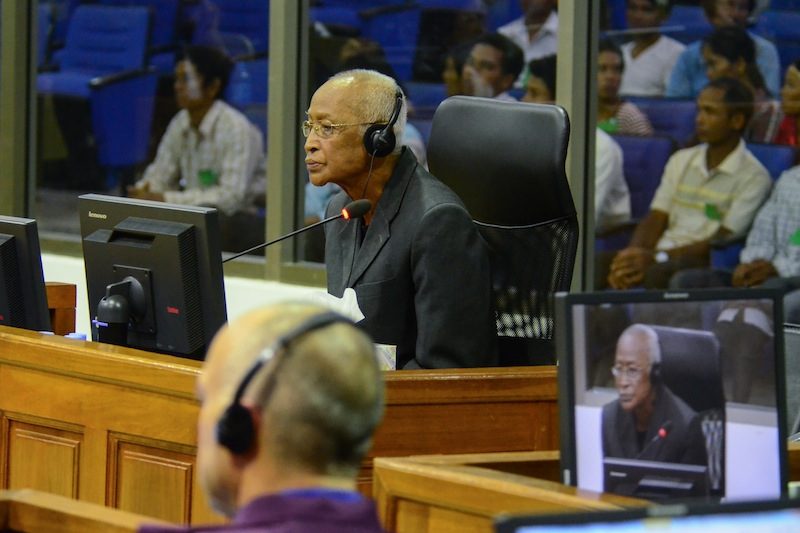The threat of forced marriages under the Khmer Rouge led some transgender people to commit suicide rather than deny their gender identity, according to the latest victim to testify at the Khmer Rouge tribunal.
Testifying over two days, Sou Sotheavy, 78, a former Lon Nol soldier who presented as a man to the Khmer Rouge but knew she was a woman, told the court that rumors of transgender acquaintances killing themselves to avoid heterosexual marriages led her to make a platonic marriage arrangement in Takeo province in August 1977.

With the understanding that neither were romantically interested in the other, she and a woman from her mobile unit decided to marry after receiving death threats from their chief.
“If I had disclosed my identity or gender—that I was a…man loving the same sex—I would have been killed,” she said on Wednesday.
“We had pity on one another,” she added, explaining that both had become orphans by then.
Anticipating that the 117 couples preparing to marry would be anonymously matched in the dark, her wife-to-be agreed to tie a krama around her head, while Ms. Sotheavy tied one around her neck in a knot. The two identified one another’s scarves by touch and were wed, she said.
Following their marriage, the two were separately interrogated multiple times and told it was their duty to rebuild the Cambodian population after cadre repeatedly spied on them at night and reported their lack of sexual activity, Ms. Sotheavy said.
“I did not have any feelings for any woman,” she said. “I was threatened that if I did not consummate the marriage, I would be killed.”
Given wine to drink, the two had sex, resulting in a child that Ms. Sotheavy found out about years later, but whose fate remains a mystery to her. She and her former wife, who has since died, never had sex again, she said.
In addition to the emotional pain she suffered from being forced to marry and have sex with a woman, Ms. Sotheavy said she lost her parents and 14 siblings to the regime and became handicapped from shackles she wore during imprisonment.
“I have waited for a long time until my tears dried up,” she said. “Everybody knows what happened under the regime, but I suffered the most…due to my transgender nature.”